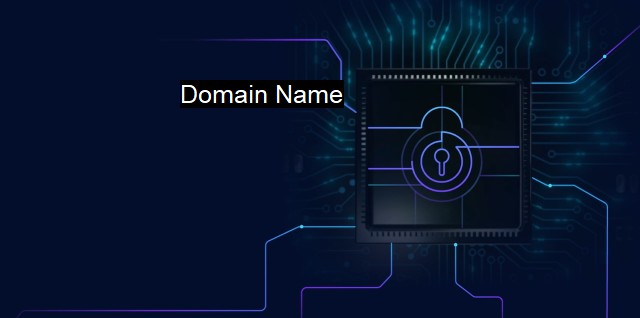What is Domain Name?
The Importance of Domain Names in Cybersecurity and Antivirus: Understanding Their Fundamental Role in Identifying and Protecting Against Malicious Websites
A domain name is a core aspect that plays a notable part in the cyberspace ecosystem, facilitating users' movement on the internet. In relation to cybersecurity and antivirus, understanding the connotation and utilization of domain names is indispensable, as it manifests paramount importance.a domain name is an address where internet users can access your website. It’s equivalent to a physical address of a house in the real world. It is how you can invite friends over or how a delivery service can dispatch a package to your doorstep. Both houses and websites require addresses so that they can be found by others, and in the context of a website, that address is the domain name.
A domain name is represented by a string of numbers and letters used to define a realm of administrative autonomy, authority, or control within the internet. It is used in various contexts in networking, application, service-specific naming and addressing purposes; typically, identitying internet resources such as personal computers used to access the internet, servers hosting websites, or the web pages themselves.
When considering cybersecurity, domain names play a significant role. They represent the first line of communication between computers and end-users on the internet. ISPs or Internet Service Providers need domain names to route data from servers to consumers. Hence, it stands as a vital piece of information highway, along with IP addresses.
On the side of threats, hackers can conduct a slew of devious practices using domain names. One prominent strategy is called domain spoofing - where cyber criminals emulate a website’s domain name by making minimal changes hard for a normal user to notice. This could lead to phishing attacks, duping the user into revealing personal or financial information to the wrong sources thinking they are on a legitimate website.
Similarly, cybercriminals can create similarly named domains to popular websites hoping that users will mistype the site they intended to visit. This concept, known as typosquatting, can also lead to the unintended download of malware or ransomware onto users' systems.
In the antivirus arena, knowing how domain names operate can be extremely useful. Antivirus software constantly monitors domain names to screen if the domain name-server response matches the known malicious signatures, thus predicting and preventing security breaches. They can block access to malicious domains or alert the user if they try to access potentially harmful sites. Antivirus systems can potentially spot thousands of new web pages every day that contain malware or potentially unwanted programs (PUPs).
Most antivirus tools leverage blacklisting, a technique for labeling identified domains involved in stipulating threats, thus forbidding the user access to these links. These antivirus tools are crucial for both individuals and businesses as they help secure sensitive and personal data from potential threats.
An understanding of domain names is necessary in order to maintain a secure internet environment. Being cognizant of your digital footprints and how your interaction with different domain names can influence your online safety is paramount, especially in our ever-evolving digital era. the context of domain names casts a wide net over other cybersecurity aspects such as phishing, ransomware attacks, IP reputation, and the effectiveness of antiviral solutions.
a domain name is much more than just a placeholder or an address for a website. In the grand scheme of cybersecurity and antivirus consideration, domain names are intimately tangled up - a regeneration ground for threats and concurrently, a weapon for defense. Acknowledging domain names, their roles, how they work, and most importantly, how they can be exploited or defended should be an integral part of any user’s cybersecurity knowledge benchmark.

Domain Name FAQs
What is a domain name?
A domain name is the address or name of a website that identifies the site's unique location on the internet. It is a string of characters that is used to translate the IP address of a website, making it easier for people to access and remember websites.How can a domain name impact cybersecurity?
Domain names can be used in cyber threats such as phishing attacks, malware distribution, and other fraud schemes. Hackers can create fake domain names that mimic a legitimate website to trick users into visiting malicious sites and stealing their personal information. Using a trusted domain name registrar and implementing DNSSEC can help prevent these types of attacks.Can a domain name be used as an antivirus?
No, a domain name cannot be used as an antivirus. It is just an identifier or address for a website. However, domain names can help enhance the effectiveness of antivirus software by blocking access to malicious sites known to host malware or other cyber threats.How important is it to choose the right domain name for a business?
Choosing the right domain name for a business is crucial as it can impact brand awareness, search engine optimization, and customer trust. A clear and memorable domain name also helps customers find and remember your website. It's essential to choose a domain name that accurately reflects your business and is easy to spell and type.| | A | | | B | | | C | | | D | | | E | | | F | | | G | | | H | | | I | | | J | | | K | | | L | | | M | |
| | N | | | O | | | P | | | Q | | | R | | | S | | | T | | | U | | | V | | | W | | | X | | | Y | | | Z | |
| | 1 | | | 2 | | | 3 | | | 4 | | | 7 | | | 8 | | |||||||